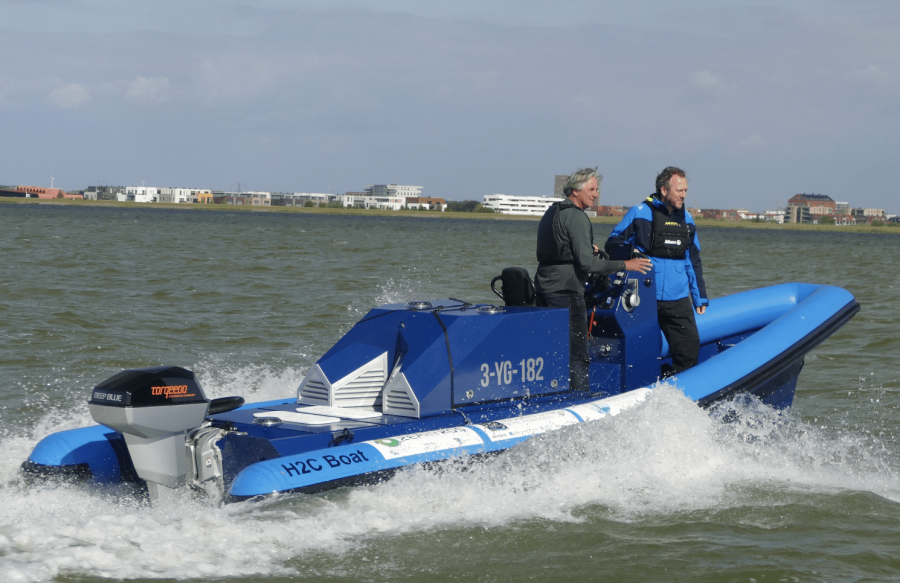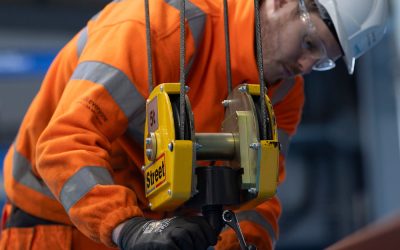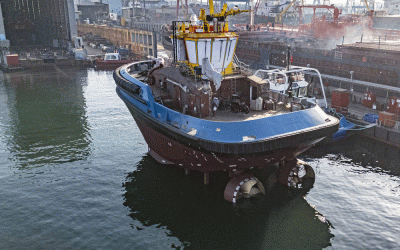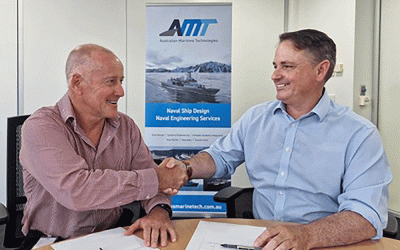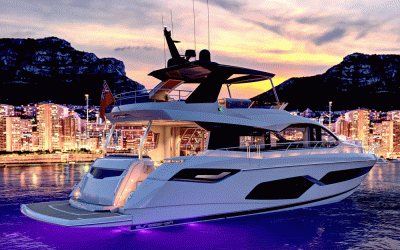The 2023 edition of the Sailing World Championships welcomed more than 1,200 competitors to The Hague this August, all eager to qualify for a place at next year’s Summer Olympics in Paris. However, among the 900+ skiffs, dinghies and multihulls that participated in the event, a humble coach boat was making a bit of history of its own.
The H2C Boat, as it has been dubbed, is the first hydrogen-powered RIB to have been commissioned by Dutch sailing organisation and event co-organiser Watersportverbond – and the end result is a more environmentally friendly boat type, enabling coaching staff to provide advisory and physical support to athletes in a smoke-free, emissions-free manner.
The H2C Boat was developed by H2 Marine Solutions, a consortium created to focus on sustainable sailing using hydrogen. Current H2 Marine Solutions partners include: Habbeké Shipyard; electric drivetrain supplier De Stille Boot; and engine dealer Koedood. Interestingly, these maritime experts have been joined by HyFly, a firm specialising in hydrogen-fuelled aerial drones.
Marcel Schaap, MD and co-founder of De Stille Boot, comments: “The presence of hundreds of coach boats at the World Championships showcases the potential of this project in reducing the carbon footprint of sailing events” – a move that could see these boat types take up the baton from the pioneering electric ferry and leisure craft sectors.
For the H2C Boat project, H2 Marine Solutions worked closely with electric engine manufacturer Torqeedo, a long-term partner of De Stille Boot, while Habbeké handled boatbuilding duties. Initially, students from TU Delft, working alongside the Drechtsteden Economic Development Board, conducted a feasibility study, leading to the development of a proof-of-concept demo RIB, equipped with hydrogen, a fuel cell, a battery and an electric motor. This powertrain was then tested in a sloop. A further prototype was developed, which later underwent testing in the Port of Den Helder.
The finalised version of the H2C Boat features a length of 6.8m, a 2.5m beam and a draught of 500mm. Designed for one to three coaching staff, the RIB has a displacement of 1.2tonnes.
Schaap tells Ship & Boat International: “Typical coach boats, about the same size as this one or a little smaller, have 60-80hp [45-60kW] gasoline engines.” The H2C Boat was instead fitted with a Torqeedo Deep Blue 50R outboard motor, fed by a 40kWh Deep Blue lithium-ion battery. The battery is topped up by two IE-POWER 4-branded hydrogen fuel cells supplied by Intelligent Energy, each with a power output of 4kW at 48V. These self-contained fuel cells weigh around 20kg and offer 51kWh of hydrogen capacity apiece, with maximum dimensions of 450mm (width) x 300mm (height) x 500mm (depth).
“The fuel cells are both located on top of the battery compartment, behind the skipper’s seat,” Schaap explains. “The boat was designed with this equipment in mind, and has the ability to carry this extra weight and to plane efficiently at lower speeds, maximising range.”
While the coach boat can run on the Torqeedo battery and motor alone, the hydrogen serves as a significant range extender. “The H2C Boat was designed to last for a five-hour training session out on the sea with Olympic-class regatta sailboats, operating at speeds of between 5-20knots,” Schaap explains. “At a steady pace of 5knots, the range will be about 100nm, or 20 hours; at a full speed of 24-25knots, this would be 25nm or 1.25 hours.” Of course, these calculations will vary depending on the size, weight and operational profile of each future coach boat, Schaap points out.
H2 Marine Solutions is now keen to advise boatbuilders looking to install hydrogen technology on board their newbuilds, as well as those seeking to convert existing boats, using the H2C Boat’s powertrain and hardware as a template.
